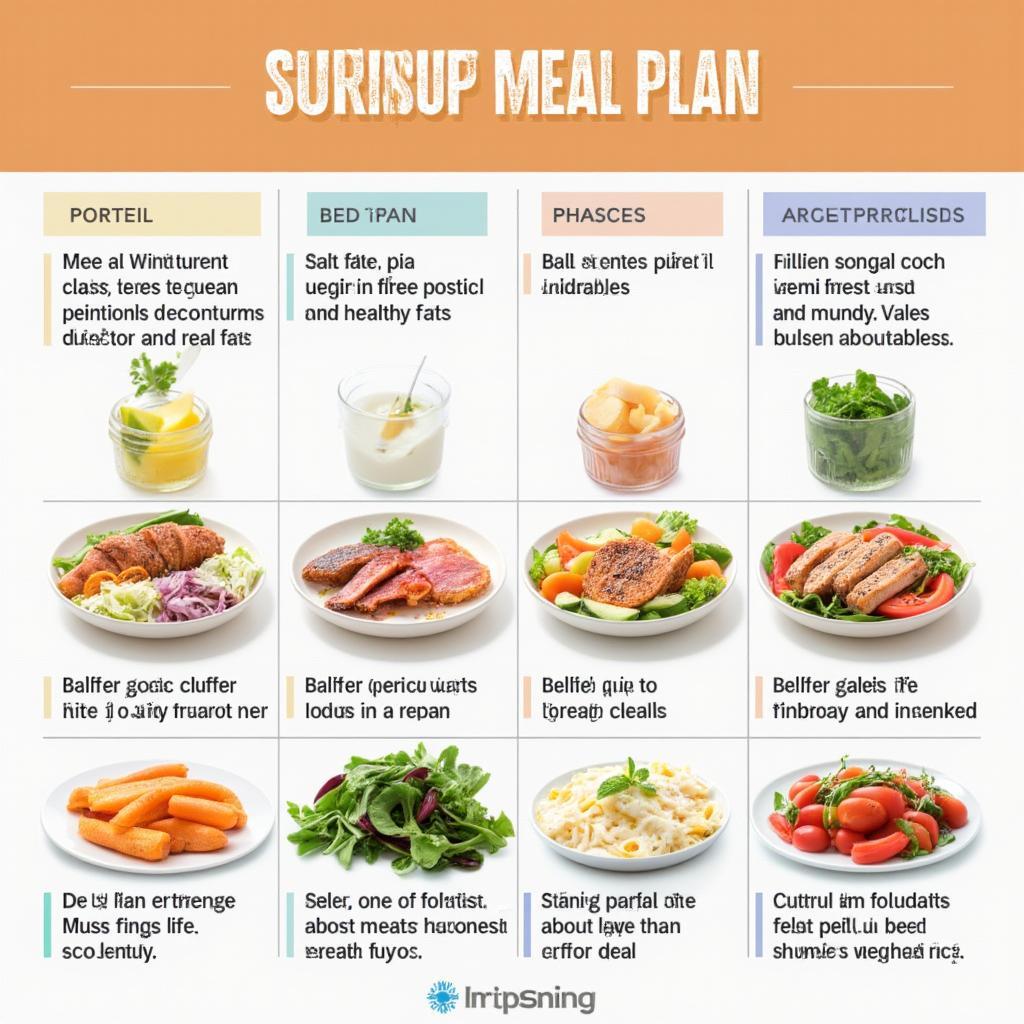The Best Way to Lose Weight With PCOS: A Comprehensive Guide

Losing weight with Polycystic Ovary Syndrome (PCOS) can feel like an uphill battle, but it’s absolutely achievable with the right approach. PCOS, a hormonal disorder common among women of reproductive age, often brings challenges like insulin resistance, hormonal imbalances, and increased inflammation, making weight management particularly tricky. This guide will walk you through evidence-based strategies to help you navigate this journey effectively and sustainably.
Understanding the complexities of PCOS is crucial before diving into weight loss methods. PCOS affects more than just your weight; it impacts your overall metabolic health, hormone levels and fertility. Let’s start with understanding the specific challenges that this hormonal condition poses in order to choose the best way for pcos to lose weight.
Understanding the Challenges of PCOS and Weight Loss
Many women with PCOS experience insulin resistance, where cells don’t respond properly to insulin, leading to higher blood sugar levels. The body compensates by producing more insulin, which can trigger the ovaries to produce excess androgens (male hormones), further contributing to hormonal imbalances and weight gain, particularly around the abdomen. Another challenge is managing inflammation which is often elevated in people with PCOS and interferes with healthy metabolic function and makes it harder to lose weight. So, what are the most effective approaches for weight loss with PCOS? Let’s explore evidence based solutions.
Diet Strategies for PCOS Weight Loss
A well-structured diet is at the cornerstone of weight loss for women with PCOS. There is no single diet that works for everyone. Finding your unique balance is key. Here are a few essential dietary approaches for you to consider:
Low Glycemic Index (GI) Diet
Focusing on foods with a low GI can be beneficial for managing insulin resistance. This means prioritizing non-starchy vegetables, whole grains, legumes, and lean proteins. Low GI foods are digested slowly, causing a gradual rise in blood sugar levels and helping reduce insulin spikes.
The Importance of Fiber
Incorporating plenty of fiber is vital. Fiber helps regulate blood sugar levels, promotes satiety, and aids in digestion. Great sources include fruits, vegetables, whole grains, and legumes. Aim for at least 25-30 grams of fiber daily.
Balancing Macronutrients
Finding a good balance of protein, carbohydrates, and healthy fats is essential. Protein helps you feel full, preserve muscle mass, and supports metabolism. Opt for lean sources like poultry, fish, tofu, beans, and lentils. When it comes to carbs, choose complex carbohydrates from whole grains and vegetables over processed sugars. Including healthy fats from sources like avocados, nuts, seeds, and olive oil is also important for hormone production and overall health.
Portion Control and Mindful Eating
Paying attention to portion sizes and eating mindfully are important habits to develop to help you lose weight. This involves being aware of your hunger and fullness cues and savoring each meal without distractions. Try using smaller plates and bowls, and eat slowly to give your body a chance to register satiety.
What To Avoid
Foods that are processed, high in sugar, and refined carbohydrates should be limited. Avoiding sugary drinks, fast food, and excessive saturated fats can make a significant difference.
“When it comes to PCOS, a balanced, low-glycemic diet is the foundation for weight management,” says Dr. Emily Carter, a renowned endocrinologist specializing in PCOS. “Prioritize whole foods, lean proteins, and healthy fats while limiting processed foods and sugary drinks.”
Exercise and Physical Activity
Exercise plays an essential role in improving insulin sensitivity, reducing inflammation, and promoting weight loss with PCOS. It’s not just about burning calories, but about improving overall metabolic health.
Cardio and Strength Training
A mix of cardio and strength training is most effective. Cardio, such as brisk walking, jogging, cycling, or swimming, helps burn calories and improves cardiovascular health. Strength training helps build muscle mass, which increases your metabolism and improves insulin sensitivity. Try aiming for at least 150 minutes of moderate-intensity cardio per week along with 2-3 strength training sessions.
Incorporating Daily Movement
Beyond formal workouts, try to incorporate more movement into your day. Take the stairs, walk during lunch breaks, or do some light stretching or yoga. Every bit of movement counts toward your daily activity goals. It is not necessary to spend hours in a gym to be active, simple walking can have many benefits and is a great way to start.
Exercise and Stress Reduction
Exercise is also an effective tool for reducing stress which is often elevated in people with PCOS. High stress levels can contribute to hormonal imbalances, which in turn can hinder weight loss efforts.

The Role of Stress Management and Sleep
Stress and lack of sleep can significantly affect your hormones and weight. When you’re stressed, your body releases cortisol, which can lead to increased appetite, fat storage, and insulin resistance. Poor sleep affects several hormones, including those related to appetite and satiety. These factors can make weight loss much more challenging.
Stress Management Techniques
Incorporating stress-reduction practices can have a big impact. Consider techniques like meditation, yoga, deep breathing exercises, or spending time in nature. Find activities that you enjoy and make them a regular part of your routine. These help reduce cortisol levels and improve overall well-being.
Prioritizing Quality Sleep
Aim for at least 7-8 hours of good quality sleep per night. A consistent sleep schedule and a relaxing bedtime routine can improve sleep quality. Make sure your bedroom is dark, quiet, and cool, and avoid screen time before bed.
Medications and Supplements
While lifestyle changes are foundational, some medications and supplements can support weight management with PCOS. Always consult your healthcare provider before starting any new medications or supplements.
Medications for Insulin Resistance
Some medications used to treat type 2 diabetes, such as metformin, can help improve insulin sensitivity in women with PCOS and potentially aid weight loss. Your doctor can assess whether these are suitable for you.
Supplements that May Help
Certain supplements have been shown to help with some PCOS symptoms, including weight management. These include inositol, omega-3 fatty acids, and vitamin D. However, research is ongoing, and what works for one person might not work for another. Be sure to consult with a healthcare professional before beginning supplementation.
“The best way to lose weight with PCOS is a combination of lifestyle changes, including diet and exercise, stress management, and, in some cases, medications and supplements,” states Dr. Michael Thompson, an expert in reproductive endocrinology. “It’s a highly personalized journey.”
Monitoring Your Progress
Tracking your progress is important to stay motivated and make adjustments as needed. Keep a journal, track your measurements, or use a mobile app to monitor your diet, exercise, and weight. Remember that it’s not just about the number on the scale; pay attention to how you feel, your energy levels, and other health markers.
Seeking Professional Support
Working with a healthcare team, including a doctor, dietitian, and fitness trainer, can provide personalized support and guidance for weight loss with PCOS. They can help tailor a plan that fits your specific needs and challenges. Don’t hesitate to lean on these resources for the best possible outcome.
Creating a Sustainable Plan
Remember, best way for pcos to lose weight is not about quick fixes but making sustainable changes to your lifestyle that you can maintain long-term. Don’t be discouraged by setbacks; they are a normal part of the process. Celebrate your progress and adjust your plan when needed. Consistency and patience are your greatest allies. Don’t compare your journey to others, focus on your progress. Understand that sometimes you might not be able to see changes on the scale for a while due to metabolic changes.
Navigating Weight Loss While Pregnant With PCOS
It is important to address the fact that many people with PCOS struggle with infertility, and therefore many people with PCOS might be seeking information regarding weight loss while pregnant. It’s crucial to emphasize the importance of consulting with a healthcare professional if you are considering ways to lose weight while pregnant. The journey of pregnancy presents a unique set of challenges and requires careful consideration of the best approach for both the mother and the developing baby. It’s important to recognize and appreciate all the complexities that pregnancy presents, and how it can affect weight management. You may also have interest in if can women lose weight while pregnant and this is something that your doctor should discuss with you.
Conclusion
Losing weight with PCOS requires a holistic approach that addresses the underlying hormonal and metabolic issues. It’s not a one-size-fits-all journey; it’s about finding what works best for your individual needs and circumstances. By focusing on a healthy diet, regular exercise, stress management, and, when necessary, medications or supplements, you can manage your weight effectively while also improving your overall health and well-being. Remember that sustainable lifestyle change is the key to long term success. Don’t be afraid to seek guidance from medical and nutrition professionals who can help you throughout the process. Take it one day at a time and celebrate every victory along the way. And finally, never forget that even though losing weight with PCOS can be tricky, it’s absolutely achievable.
Frequently Asked Questions (FAQs)
-
What is the best diet for weight loss with PCOS? The best diet is a balanced one that focuses on low-glycemic index foods, plenty of fiber, and lean proteins. It’s important to limit processed foods, sugary drinks, and excessive saturated fats.
-
How does PCOS affect weight gain? PCOS often causes insulin resistance, which can lead to increased insulin levels. These higher levels then trigger the ovaries to produce excess androgens which can cause weight gain, particularly around the abdomen.
-
Is exercise important for losing weight with PCOS? Yes, it is crucial. A combination of cardio and strength training can improve insulin sensitivity, reduce inflammation, and promote weight loss. Try to be consistent with exercise.
-
Can stress affect weight loss with PCOS? Yes, stress can lead to increased cortisol levels, which can contribute to weight gain. Managing stress through techniques like meditation or yoga can help with weight loss.
-
What are some useful supplements for PCOS weight loss? Inositol, omega-3 fatty acids, and vitamin D are supplements that have shown potential in improving some PCOS symptoms and weight management. Always discuss any supplement with a health professional.
-
How much exercise do I need to lose weight with PCOS? Aim for at least 150 minutes of moderate-intensity cardio per week, along with 2-3 strength training sessions. Incorporate daily movement into your routine for additional benefits.
-
How do I manage cravings while trying to lose weight with PCOS? Focus on eating balanced meals with plenty of protein and fiber to feel full and satisfied. Avoid processed foods and sugary drinks. Practice mindful eating techniques.
-
Can I lose weight with PCOS without medication? Yes, absolutely. Lifestyle changes like diet and exercise are the first line of defense when managing PCOS. Medication can help some people, however it is not necessary for everyone.
-
Is it safe to use how to lose weight in one day without exercise to lose weight with PCOS? No, trying to lose weight in one day is not a sustainable or healthy approach for anyone, especially those with PCOS. Focus on long term sustainable changes to your lifestyle.




